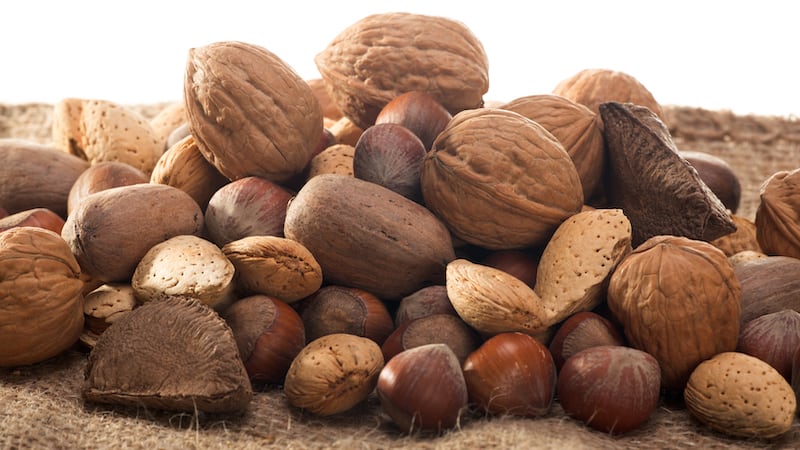We know nuts are incredibly good for you. They’re an excellent source of antioxidants and fiber, pack plenty of nutrient-dense monounsaturated fat, and have been shown to lower cholesterol, inflammation, and your risk of heart disease. But if you don’t know the guidelines for buying and storing nuts, you may lose much of that nutty goodness.
Walnuts, pistachios, hazelnuts, almonds and the lot are tasty treats in trail mix, but their uses are nearly never-ending. Fold walnuts into homemade bread dough, mix cashews into granola, or throw a handful of almonds and a pinch of salt into your food processor for some seriously delicious DIY nut butter.
Now that we’ve covered what we do know about these tasty nutritional powerhouses, read on for some of the (unexpected) mistakes many of us make in buying and storing nuts.
Mistake No. 1: Shopping the bulk bins
The biggest blunder is buying from the bulk bins at your grocery store. It’s nearly impossible to tell how often the shop replaces these nuts, or how long they’ve been sitting out in the open air. According to Steve Lindsay, the Director of Quality Assurance for Diamond Nuts, oxygen is the number one enemy of any nut’s shelf-life. Those sitting in bulk bins are constantly exposed to oxygen. Your best bet for finding fresh nuts is to buy those sealed in a bag, which will ensure freshness and prevent oxygen from slipping through.
One final word on bulk bins: Some people stick their bare hands directly into the bins to sneak a snack. This exposes the contents to oodles of outside germs and bacteria.
Mistake No. 2: Storing them in the pantry

Contrary to popular belief, nuts should be stored in the fridge or freezer. Why? Because nuts contain a high amount of unsaturated fat, a delicate type of oil which makes them highly prone to going rancid. Spoilage is accelerated even more by light, oxygen and — you guessed it — heat. Storing nuts (and seeds) in the fridge or freezer limits their exposure to all three and will result in your nuts tasting less bitter and more flavorful for a longer time.
According to Lindsay, you can keep an unopened bag of shelled or in-shell nuts in the fridge or freezer for two years (!). Even if the bag has been opened, shelled nuts should last an entire year, and in-shell nuts will last about a year and a half.
If you’re going to use your nuts in the immediate future, it’s fine to keep them in a cool, dark spot in your pantry. Just make sure they’re in an airtight container and plan to eat them within a couple of weeks.
Mistake No. 3: Paying too much attention to expiration dates
Expiration dates are problematic for many reasons, primarily because they’re merely suggestions or guesses. The shelf life of nuts depends on three key factors: storage conditions, shelled or unshelled, and whether or not the package is opened.
A good rule of thumb is to think of nuts as produce rather than a packaged good. Just as you would with fresh spinach or a ripe tomato, give them a sniff before you eat them. As nuts age, the rancidity will give them a paint-like smell. If you get any harsh or bitter aromas, toss them. To further extend shelf life, Diamond of California adds a hint of rosemary extract to their products, which you can try, too.
Real Simple magazine provides smart, realistic solutions to everyday challenges. Online at www.realsimple.com
©2023 Dotdash Meredith. All rights reserved. Used with permission. Distributed by Tribune Content Agency, LLC.
Read similar articles on Seniors Guide like this one: How to Identify a Fad Diet
